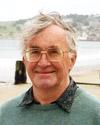
1802 - 1896 Person Name: W. H. Furness Author of "Thou who dost all things give" in Worship Song Furness, William Henry, D.D., born in Boston, 1802, and graduated at Harvard in Arts and Theology, 1820. From 1825 he has been an Unitarian Pastor in Philadelphia. He is an accomplished scholar, and has been an active worker in reforms of various kinds. His publications are numerous and
include a Manual of Domestic Worship, 1840, and a translation of Schiller's Song of the Bell.
His hymns are somewhat numerous, and several of them have great merit. The best and most widely used are:—
1. Father in heaven, to Thee my heart. Resignation. Appeared in The Christian Disciple, 1822. It was repeated in this form in some of the older collections, and a few modern hymnals, including the Boston Unitarian Hymns [& Tune] Book, 1868. In 1846 it was given in Longfellow and Johnson's Book of Hymns as "Father in heaven, to Whom our hearts;" again in their Hymns of the Spirit, 1864, and in Dr. Martineau's Hymns of Praise & Prayer, 1873. This hymn is sometimes ascribed to "H. Ware," but in error.
2. Feeble, helpless, how shall I? Jesus our Leader. First published in the Cheshire Unitarian Christian Hymns, 1844, No. 272, in 5 stanzas of 4 lines. It is in several modern collections, including Lyra Sacra Americana, 1868: Thring's Collection, 1882.
3. Have mercy, 0 Father. Divine direction desired. Contributed to Dr. Martineau's Hymns of Praise and Prayer, 1873, in 2 stanzas of 6 lines.
4. Here in a world of doubt. Psalms xlii. Contributed to the N. Y. Lutheran Collection, 1834, and repeated in his Manual of Domestic Worship, 1840, Martineau's Hymns, &c, 1873.
5. Here in the broken bread. Holy Communion. Appeared in the Appendix to the Philadelphia Unitarian Collection, 1828. It is in a few modern collections, including the Boston Unitarian Hymn [and Tune] Book, 1868.
6. Holy Father, Gracious art Thou. Purity & Peace. Contributed to Dr. Martineau's Hymns, &c, 1873, in 1 stanza of 12 lines.
7. I eel within a want. Likeness to Christ desired. Appeared in the Cheshire (U. S.) Unitarian Christian Hymns, 1844, No. 687, in 4 stanzas of 4 lines. It is in a few collections both old and new.
8. In the morning I will raise [pray] . Morning. Appeared in his Manual of Domestic Worship, 1840, in 6 stanzas of 4 lines, and repeated in Dr. Martineau's Hymns, &c, 1873. In Longfellow and Johnson's Book of Hymns, 1846, and the Boston Unitarian Hymn [& Tune] Book it begins with stanzas ii., "In the morning I will pray."
9. 0 for a prophet's fire. Holy Communion. Published in the Appendix to the Philadelphia Unitarian Collection, 1828, and repeated in the Cheshire (U. S.) Unitarian Christian Hymns, 1844, and later hymn-books.
10. Richly, O richly have I been. The Prodigal Son. In his Manual of Devotion, 1840. In Longfellow and Johnson's Book of Hymns, 1846, and their Hymns of the Spirit, 1864, it is given as "O richly, Father, have I been"; whilst in Hedge & Huntington's Hymns for the Church of Christ, 1853, the Boston Unitarian Hymns [and Tune] Book, 1868, and others, it opens with stanzas ii., "Unworthy to be called Thy son."
11. Slowly by Thy [God's] hand unfurled. Eternal Light. Given in his Manual of Domestic Worship, 1840, and repeated in a few hymnals. In Drs. Hedge & Huntington's Hymns for the Church of Christ, 1853, the first line was changed to “Slowly by God's hand unfurled." This is the reading of the Boston Unitarian Hymn [& Tune] Book, 1868. Dr. Martineau retains the original reading in his Hymns, &c, 1873.
12. Thou only Living, only True. Ordination. In Dr. Martineau's Hymns, &c, 1873, where it is dated 1868.
13. To the High and Holy One. Consecration of Church. In Lyra Sacra Americana, 1868. From this is taken "To the truth that makes us free" (stanzas ii.), in the Boston Hymns of the Spirit, 1864.
14. What is the world that it should share? Invocation of the Spirit. Given in The Christian Disciple, 1822, and Dr. Martineau's Hymns, &c, 1873. It begins with stanza ii. of his hymn "Here in Thy temple, Lord, we bow." In Lyra Sacra Americana it reads, "Oh, is there aught on earth to share."
15. What is this that stirs within? The Soul. Appeared in his Manual of Domestic Worship, 1840. In 1844 it passed into the Cheshire (U.S.) Unitarian Christian Hymns, No. 318, and later into numerous collections, both old and new. Furness died in 1896. [Rev. F. M. Bird, M.A.]
--John Julian, Dictionary of Hymnology (1907)
===================
Furness, W. H., p. 402, ii. His Verses, Translations, and Hymns were published 1886. Of his hymns the following, in addition to those on pp. 402-3, have come into common use:—
1. She is not dead, but sleepeth. [Death and Burial.]
2. That God is Love, unchanging Love. [God is Love.] This is in several American collections, including the Boston Unitarian Hymns for Church and Home, 1895, where it is dated 1892.
3. Thou Who dost all things give. [Seeing the Unseen.] This is dated in The Pilgrim Hymnal, 1904, as having been written in 1860. It is from the Author's Verses, &c, 1886. Also in Border's Treat. of Amer. Sacred Song, 1896.
Dr. Furness was b. April 20, 1802, and d. in 1896.
--John Julian, Dictionary of Hymnology, New Supplement (1907)
William Henry Furness



